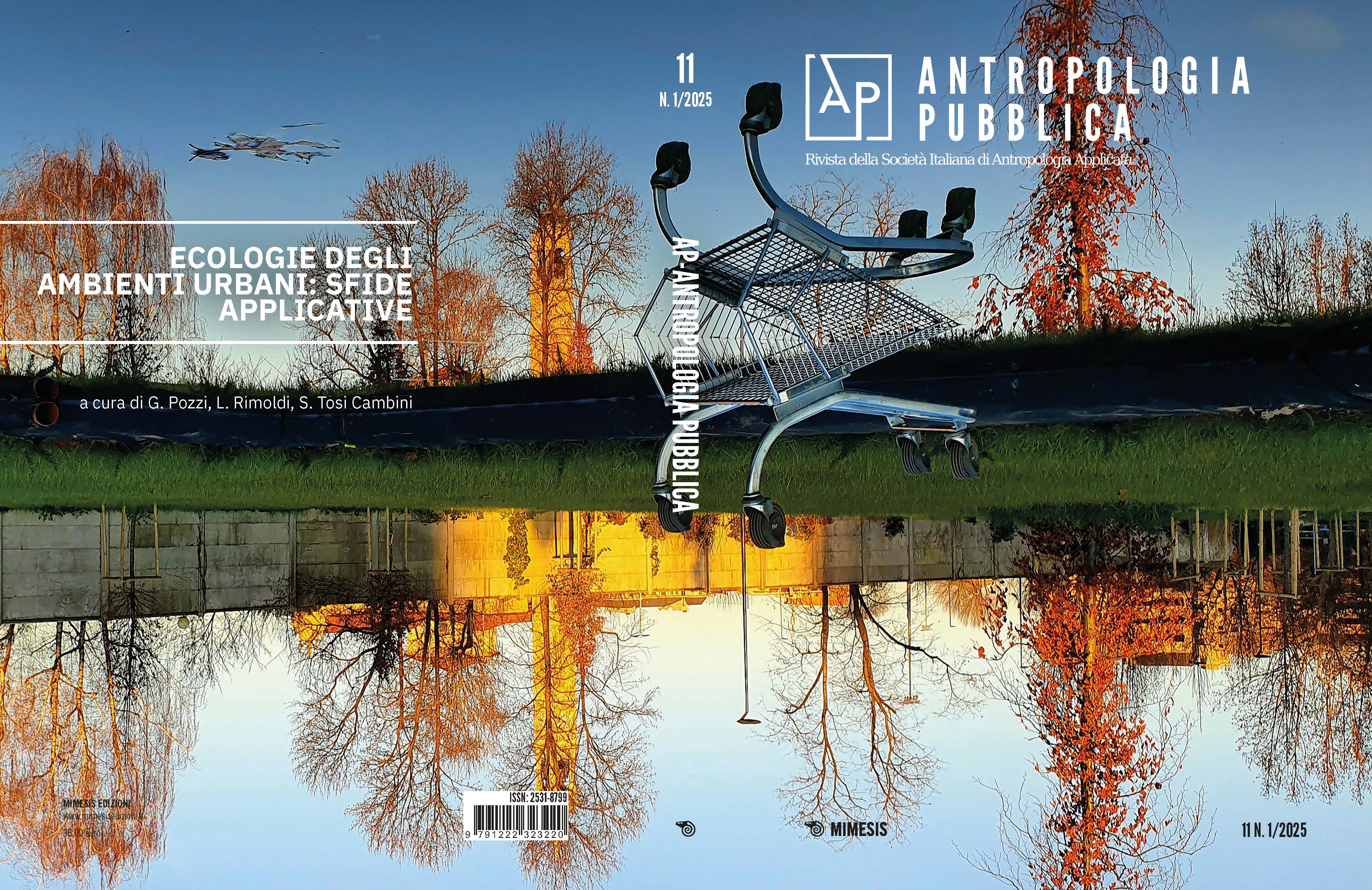Building an integrated approach and rethinking public action. Exploring an ecology of relationships in urban contexts
DOI:
https://doi.org/10.7413/2531-8799049Keywords:
Urban; Spatial relationships; Public action; Urban and social living labs.Abstract
The urban requires an overall vision of a multiplicity of aspects and, therefore, investigating the urban calls upon many different disciplines to dialogue and collaborate. In my experience as an urban planner, it was necessary to involve other perspectives and other readings, from sociological and anthropological ones to ecological and environmental ones. Living is a complex and difficult “profession” which, to be interpreted but also to be practiced, requires attention to relationality. In particular, the contribution will discuss the dimension of relations of use of space.
The paper will discuss the implications in rethinking public action, which is not simply the action of the State or, more generally, of institutions, but is the possible outcome of actions of different subjects/actors/people, institutional and otherwise, who interact in a general perspective of collective interest (not necessarily “public”) and who have systemic effects. This pushes us to rethink the role of institutions, on the one hand, and that of forms of self-organization and mutualism networks, on the other, with all the problems and critical issues that they bring with them.
These reflections will be supported by the return of various field research conducted for some years in the Roman suburbs, forms of action research aimed at “urban and social regeneration” through “neighbourhood laboratories” or “urban and social living labs” of different types and variously structured in Tor Bella Monaca, Quarticciolo, Centocelle and Bastogi, mostly public housing districts with great difficulties.



